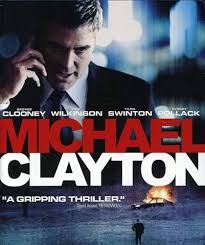Exploring the Significance of Michael Clayton in Modern Cinema

Introduction
Released in 2007, ‘Michael Clayton’ is a gripping legal thriller directed by Tony Gilroy that stars George Clooney in the titular role. The film has garnered critical acclaim for its deep exploration of ethics within the legal system, presenting a narrative that resonates in today’s world where legal battles often dominate headlines. With its thought-provoking themes, ‘Michael Clayton’ not only offers entertainment but also invites viewers to reflect on the complexities of justice and morality.
The Plot and Character Dynamics
The story follows Michael Clayton, a “fixer” at a prestigious law firm, who is often called upon to resolve sticky situations for high-profile clients. When a fellow attorney, played by Tom Wilkinson, has a mental breakdown after questioning the ethics of their most significant case against an agrochemical company, Clayton finds himself thrust into a moral and professional crisis. The tension escalates as Clayton realizes that the case may involve more than just legal ramifications; it could endanger lives as well.
Cultural and Legal Relevance
‘Michael Clayton’ serves as a cinematic mirror reflecting the ongoing tensions within corporate governance, ethics, and the legal profession. The film shines a light on the potential corruption and moral compromises that can occur when large sums of money are involved in legal disputes. As the legal landscape continues to evolve, highlighted by current events surrounding corporate accountability and high-stakes litigation, the film’s themes have gained renewed relevance, showcasing how law can be both a tool for justice and a weapon for the powerful.
Blu-ray Release and Renewed Interest
The Blu-ray release of ‘Michael Clayton’ in recent months has brought the film back to the forefront of discussions surrounding legal dramas in film history. Its inclusion in various top lists and critics’ recommendations during legal film retrospectives has introduced the film to a new generation. Film studies and law courses often use it as a case study for discussing ethical legal practices, making it a valuable educational resource.
Conclusion
‘Michael Clayton’ remains a significant film not just as entertainment, but as a catalyst for discussions about ethics in the legal field. As legal battles continue to shape social and political narratives, this film prompts audiences to examine the moral dilemmas they might encounter in their personal and professional lives. The story of Michael Clayton is one that transcends its setting, providing insights into human integrity and the quest for justice that resonate well beyond the courtroom.









